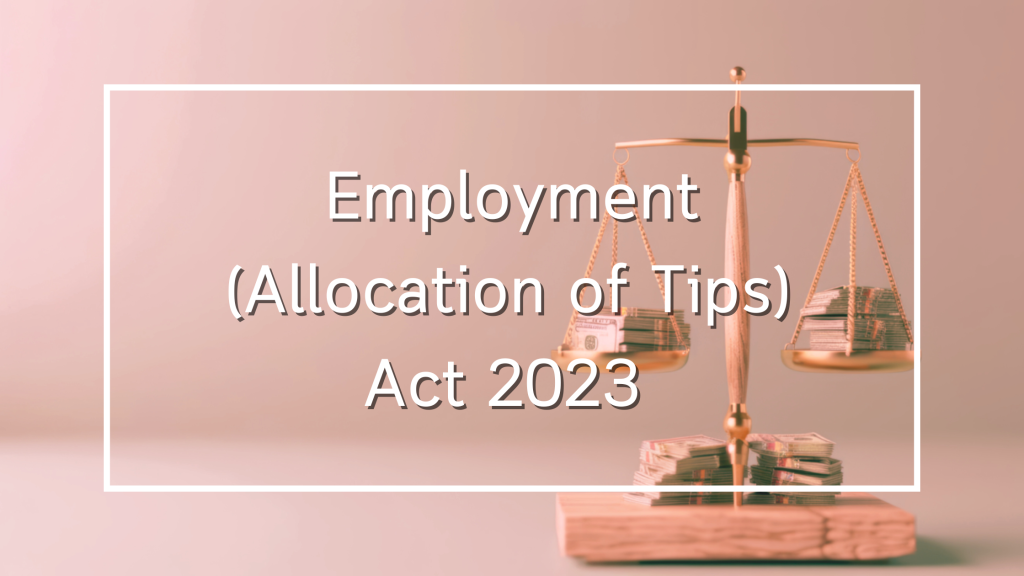Understanding the New Code of Practice.

Starting in October 2024, businesses in England, Scotland, and Wales must follow a new statutory code of practice to ensure fairness and transparency in tip distribution.
With the Employment (Allocation of Tips) Act 2023, the goal is clear : tips and service charges must go directly to workers. With no unfair deductions or interference.
But how will this impact businesses and their employees? Here’s a simple breakdown of the new Regulations and how they may affect your business.
What Is the Tipping Act?
The Tipping Act addresses concerns over how employers handle tips, gratuities, and service charges. In the past, some workers didn’t get their fair share of tips, and in some cases, employers used tips to meet minimum wage obligations. Now, the law requires that all customer tips go directly to workers, with no unfair deductions.
Employer Responsibilities
Under the Tipping Act, employers must:
- Pass all tips and service charges to staff, including temps and casual workers, in full. Only legal deductions, like income tax, are allowed.
- Create a clear and accessible written tipping policy that outlines how you manage tips.
- Keep detailed records of all tips recieved and how they are distributed, to ensure transparency.
Fair Distribution of Tips
The Act doesn’t require employers to distribute tips equally among all workers. However, they must distribute in a fair and reasonable manner. Factors like the type of work, hours worked, and performance may influence distribution.
This law applies to all workers, including agency staff, temps, and casual workers. Therefore employers must ensure every worker is treated fairly, regardless of employment status.
Transparency: A Legal Obligation
Employers must create and maintain a clear tipping policy that is available to all staff. If a tronc system is in place the employer should ensure the system is independent and fair.
The law requires employers to keep accurate records and to track all tips received. Workers now have the right to request access to these records if they believe they haven’t received their fair share.
Compliance will be essential for businesses to avoid legal and reputational risks. As this new system takes effect, employers are encouraged to review their current tipping practices and ensure they align with the principles of fairness and transparency set out in the code.
What Happens If Workers Feel Unfairly Treated?
If a worker feels unfairly treated, they should raise the issue internally or use mediation services like Acas. If the issue remains unresolved, the worker can file a complaint with an employment tribunal. Should the worker win, the employer must compensate them and any other affected employees, even those employees that didn’t file a claim.
Do You Have a Compliant Tips Policy?
Not sure where to start? Metis HR can help. Simply fill out the contact form here, and we’ll be in touch to arrange your FREE consultation or call 01706 565332.


